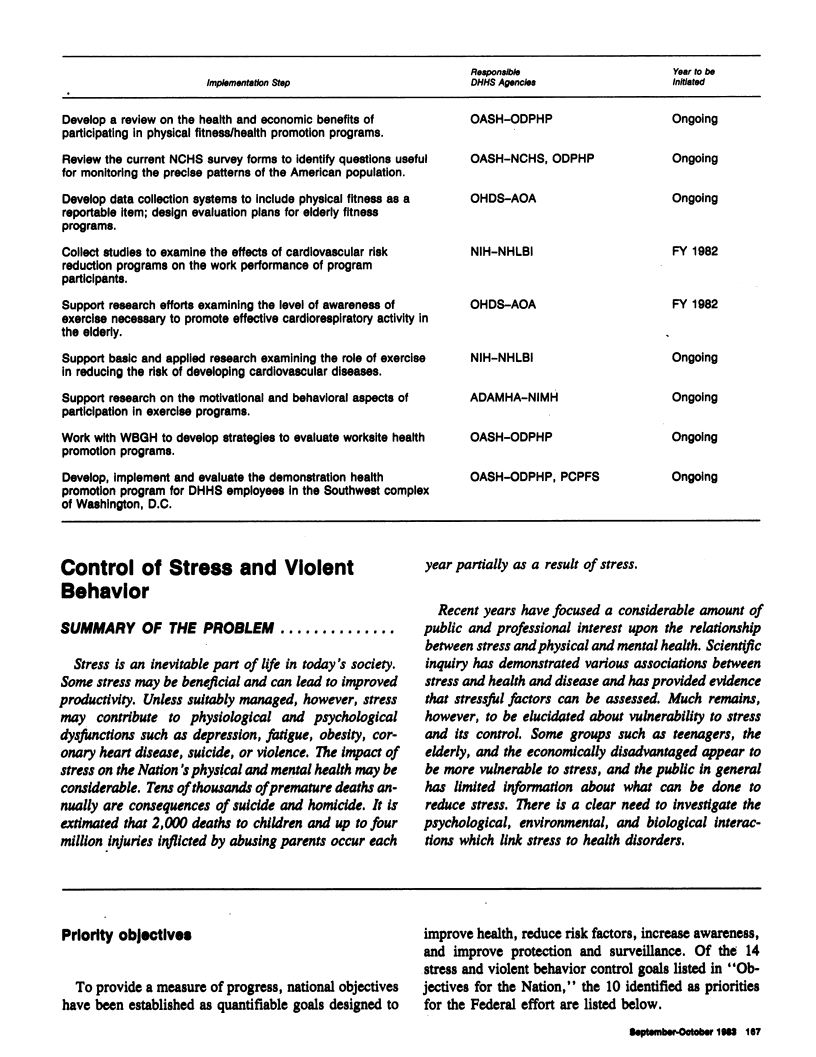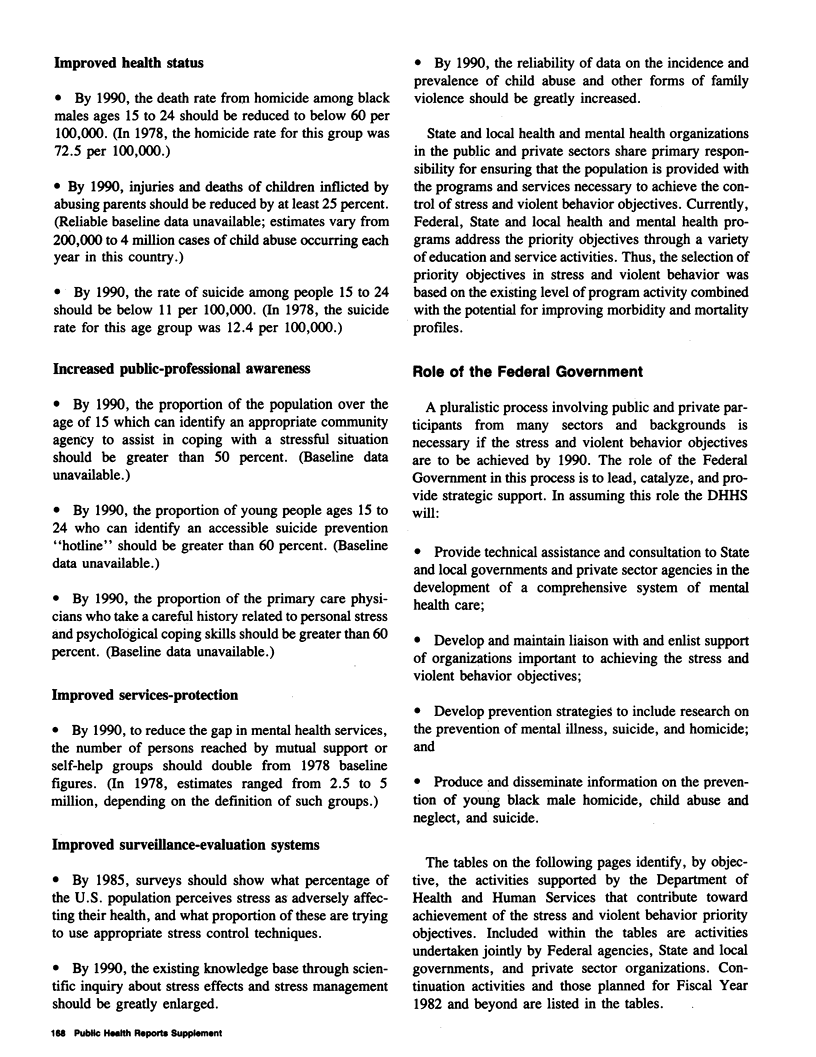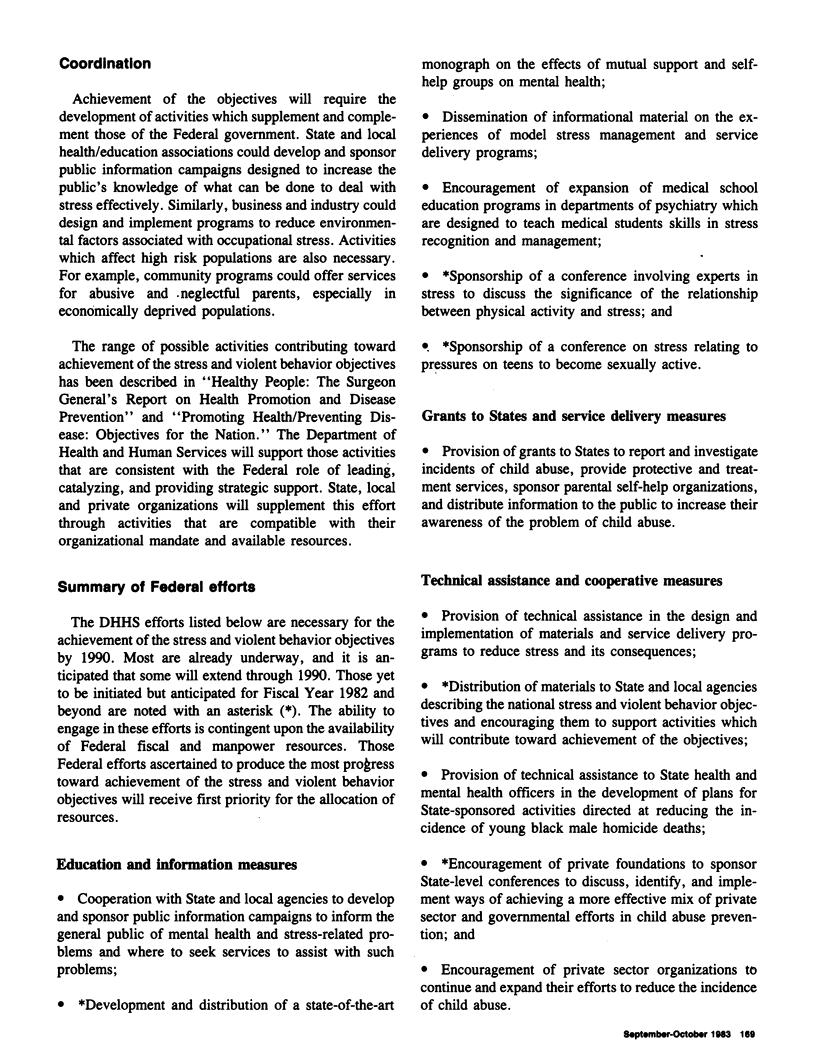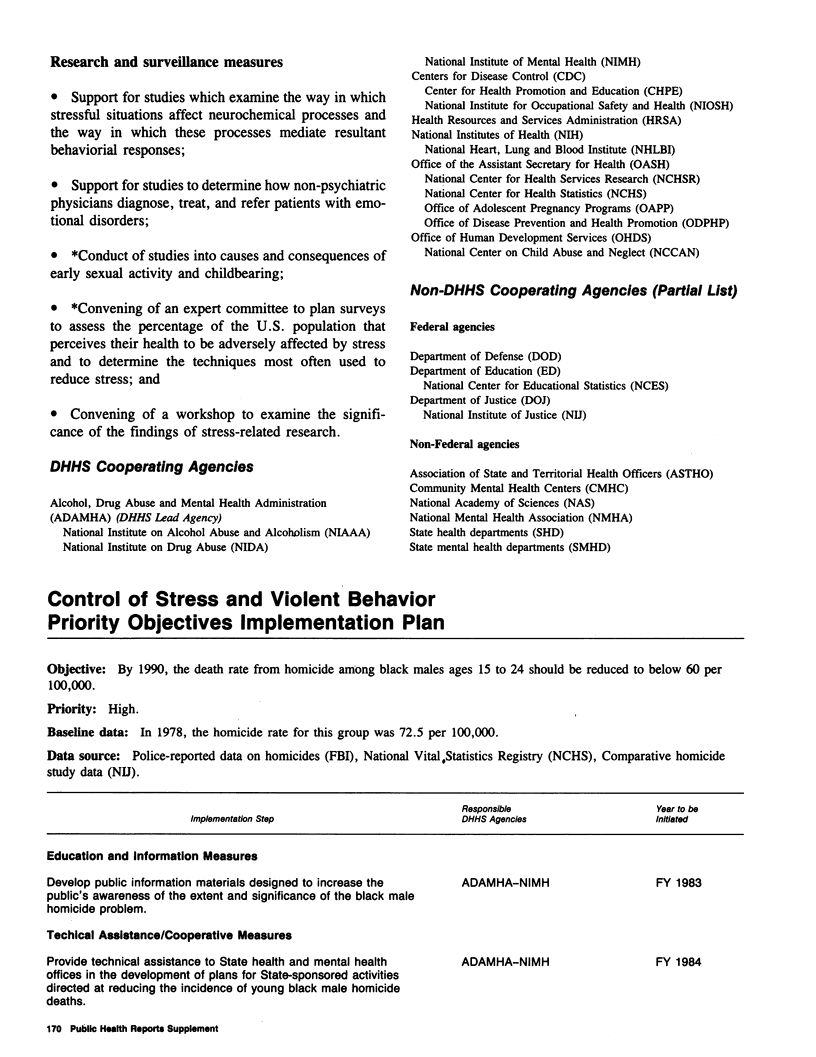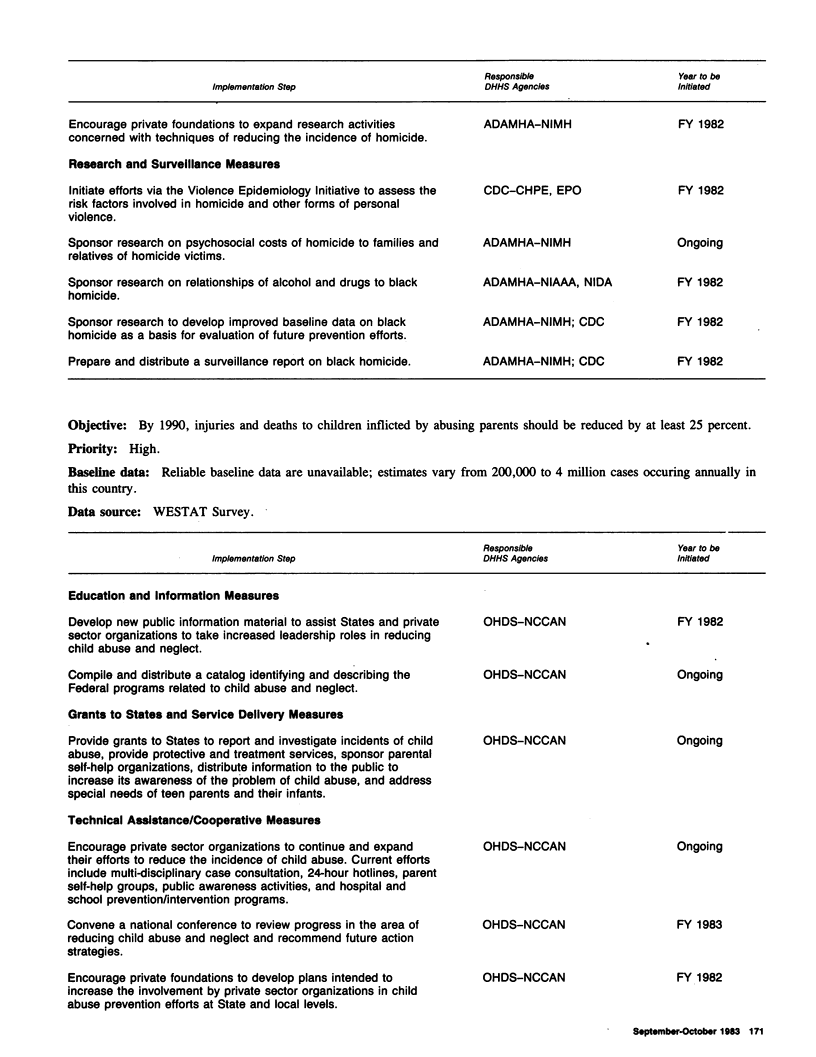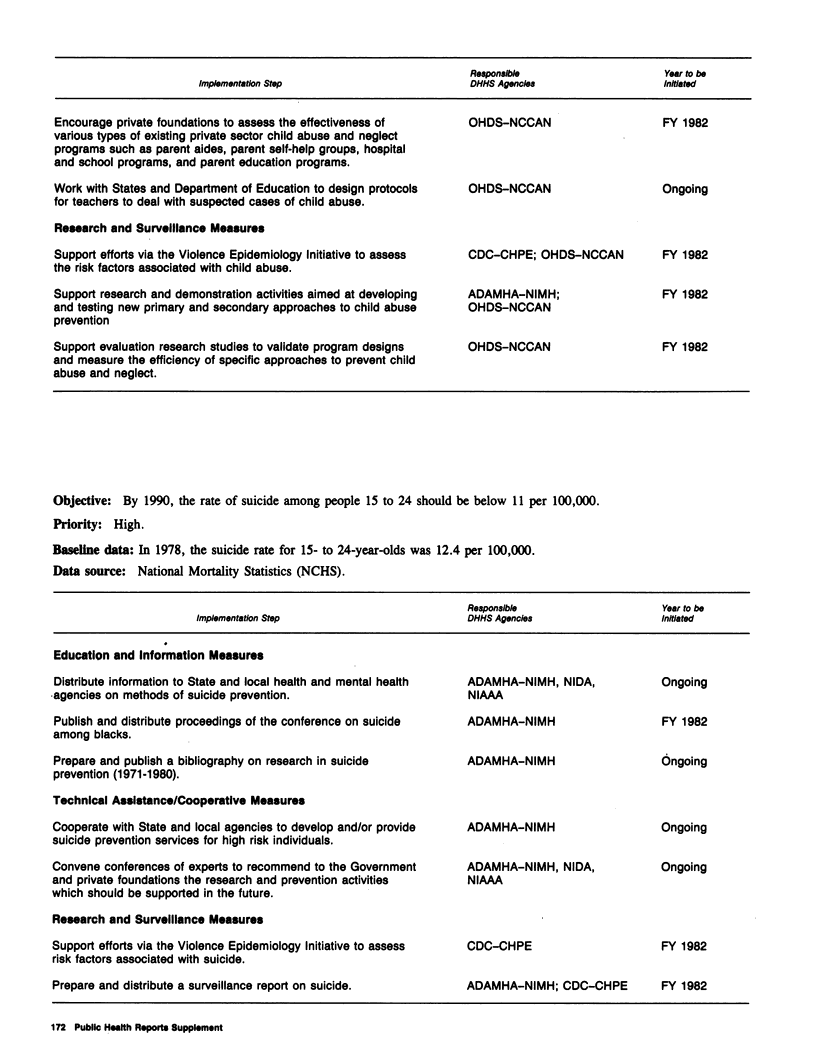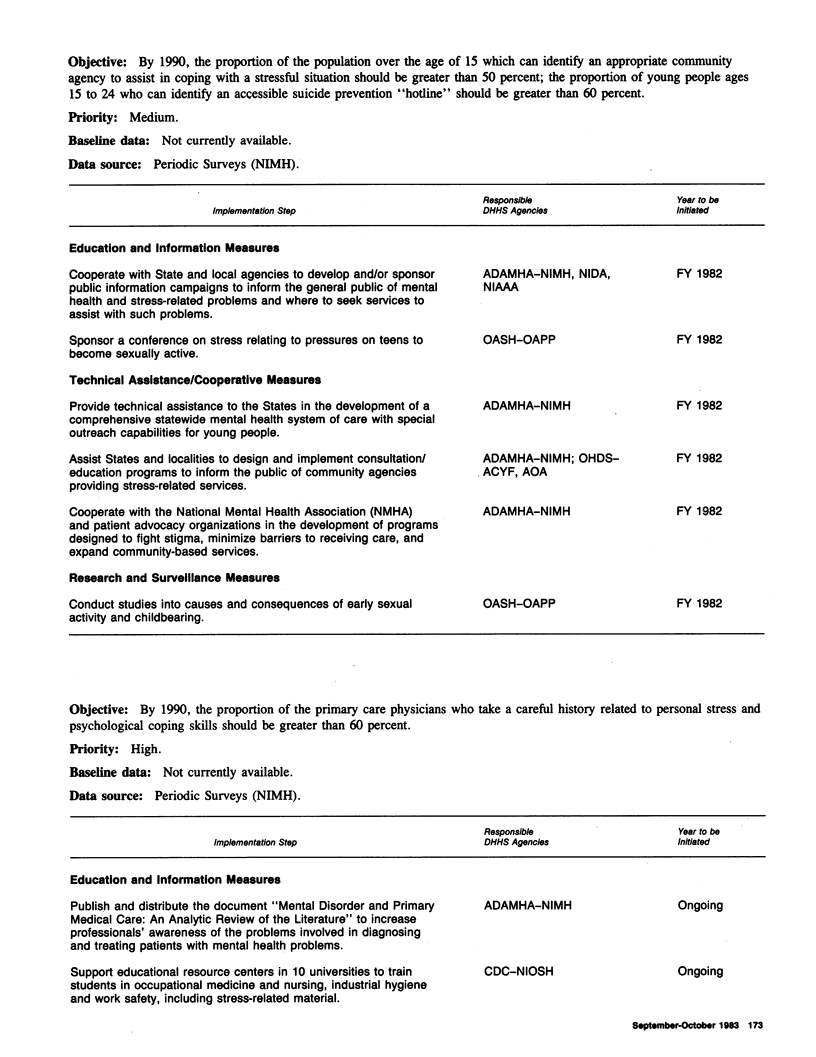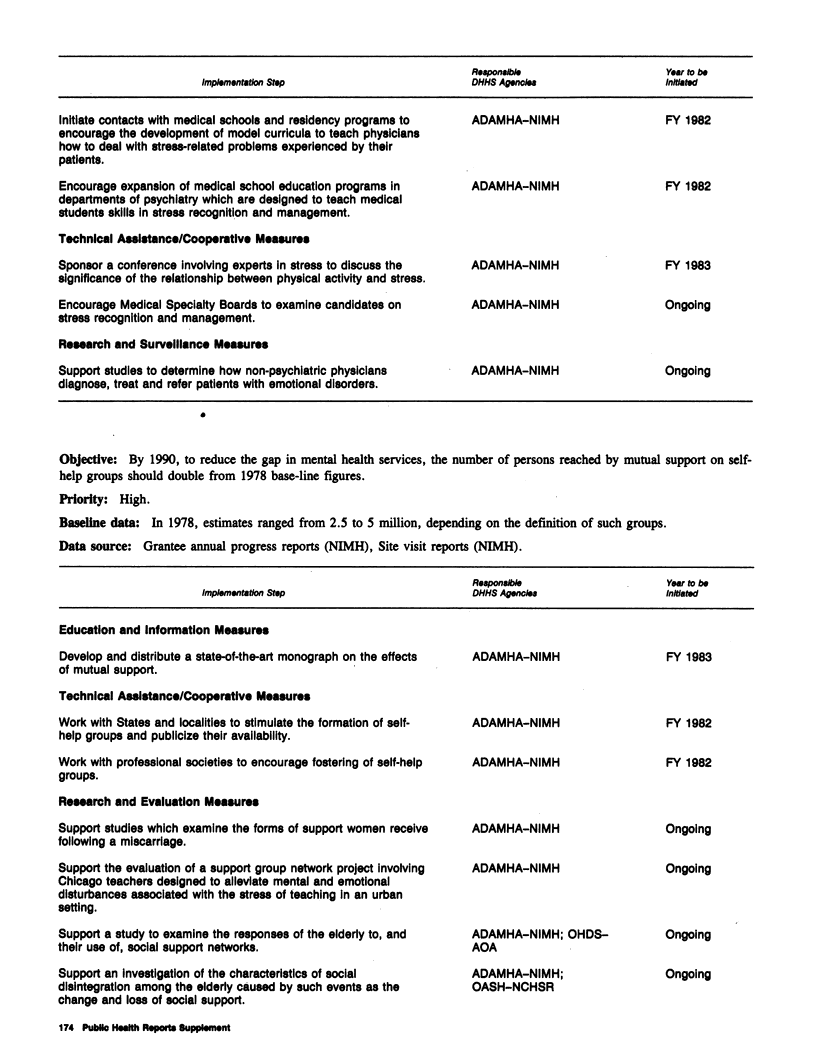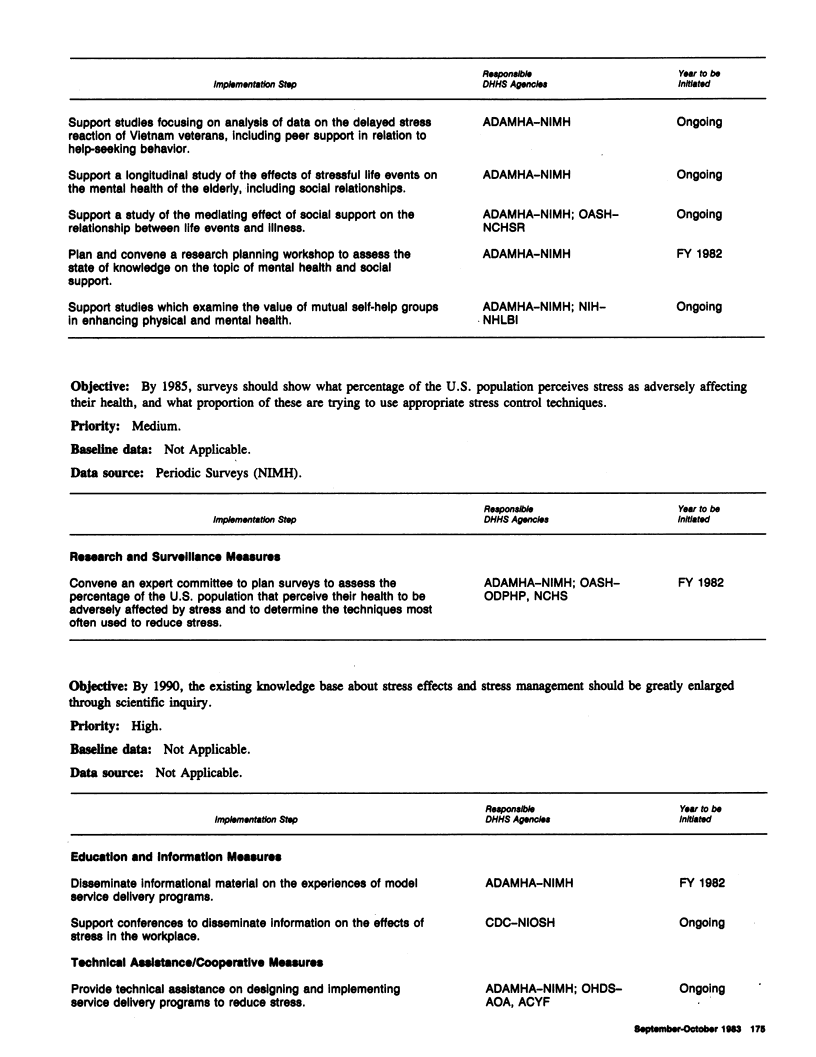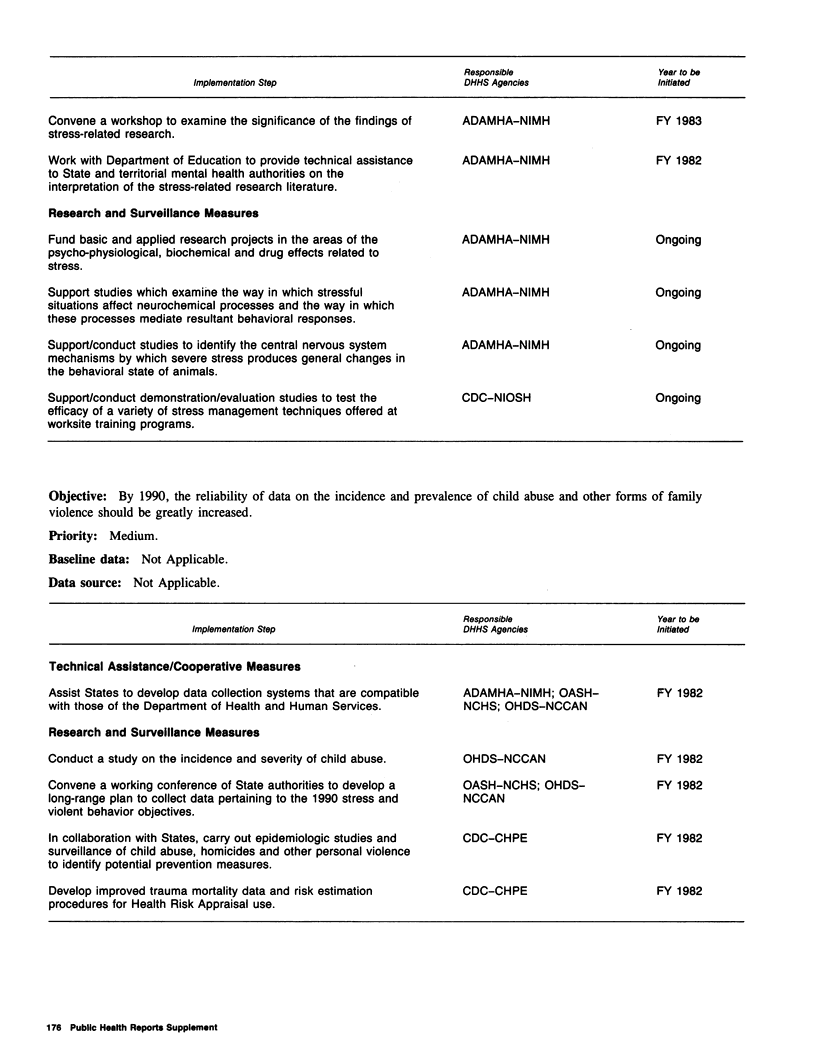Abstract
Stress is an inevitable part of life in today's society. Some stress may be beneficial and can lead to improved productivity. Unless suitably managed, however, stress may contribute to physiological and psychological dysfunctions such as depression, fatigue, obesity, coronary heart disease, suicide, or violence. The impact of stress on the Nation's physical and mental health may be considerable. Tens of thousands of premature deaths annually are consequences of suicide and homicide. It is estimated that 2,000 deaths to children and up to four million injuries inflicted by abusing parents occur each year partially as a result of stress. Recent years have focused a considerable amount of public and professional interest upon the relationship between stress and physical and mental health. Scientific inquiry has demonstrated various associations between stress and health and disease and has provided evidence that stressful factors can be assessed. Much remains, however, to be elucidated about vulnerability to stress and its control. Some groups such as teenagers, the elderly, and the economically disadvantaged appear to be more vulnerable to stress, and the public in general has limited information about what can be done to reduce stress. There is a clear need to investigate the psychological, environmental, and biological interactions which link stress to health disorders.
Full text
PDF